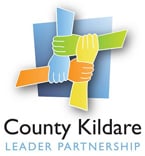Wearing a face covering is recommended to help stop the spread of COVID-19. In some situations, wearing a face covering is mandatory, and you could be fined or imprisoned if you refuse to wear one without a reasonable excuse.
When must I wear a face covering?
You must wear a face covering while using public transport.
Anyone who does not wear a face covering (or anyone who ignores a request to wear one) may get:
>> A fine of up to €2,500
>> Up to 6 months imprisonment
>> Both a fine and imprisonment
If you have a reasonable excuse to not wear a face covering, you should tell the driver or inspector.
You may have a reasonable excuse if you:
Cannot put a face covering on because of a physical or mental illness
Need to communicate with someone who has difficulties communicating
Are providing care to a vulnerable person
Are taking medication
You must also wear a face covering in shops, supermarkets, shopping centres and other retail settings. New laws will be drafted in the coming days that will make this mandatory for all customers.
It will also be mandatory for all retail staff to wear a face covering unless there is a partition or a 2-metre distance between them and customers.
You are also strongly recommended to wear a face covering in situations where social distancing is difficult, for example:
When visiting people who are cocooning
In other indoor public spaces
Face coverings are not suitable for some people, including children under 13. This means that children under 13 are exempt from the regulations.
What type of face mask should I use?
A face covering (or barrier mask) is not a medical mask, which should be reserved for healthcare professionals. It is material (usually cotton or linen) that you wear across your nose and mouth using elastic or string. You can buy a face covering or make a face covering.
Face coverings or barrier masks are not personal protective equipment (PPE). They are not intended to protect the wearer against viral infection. Instead, they may prevent the spread of COVID-19 to others.
If you are distributing (or buying) face coverings, you should make sure they are produced in line with National Standards Authority of Ireland (NSAI) specifications. The specifications include:
Clear use of the words ‘barrier mask’
Name and address of the producer
Any warnings or safety information
Instructions for use
If you choose to wear a face covering, you should continue to:
Wash your hands properly and often
Cover your mouth and nose with a tissue when you cough or sneeze
Keep at least 2 metres from other people
How do I use a face covering?
You should always wash your hands before putting on your face covering (barrier mask). Avoid touching it while you are wearing it and if you accidently touch the front, wash your hands straight away.
Make sure that the material fully covers your nose and mouth. You should check that it is tied securely and fits snugly against the side of your face.
Keep your spare face coverings in a clean, waterproof bag (such as a ziplock bag). You should carry a similar bag for used face coverings. Label these bags clearly so that you do not mix them up.
If you are a smoker, do not lift up your face covering to smoke. Instead, remove it completely and place it in your ‘used’ ziplock bag.
When you are removing your face covering, do so using the strings at the back. Do not touch the front.
If your face covering is disposable, throw it in a bin immediately after use. If it is re-usable, you should wash it in hot water (60 degrees or hotter) with detergent.
Read more about the guidelines for wearing a face covering correctly on the HSE Website

